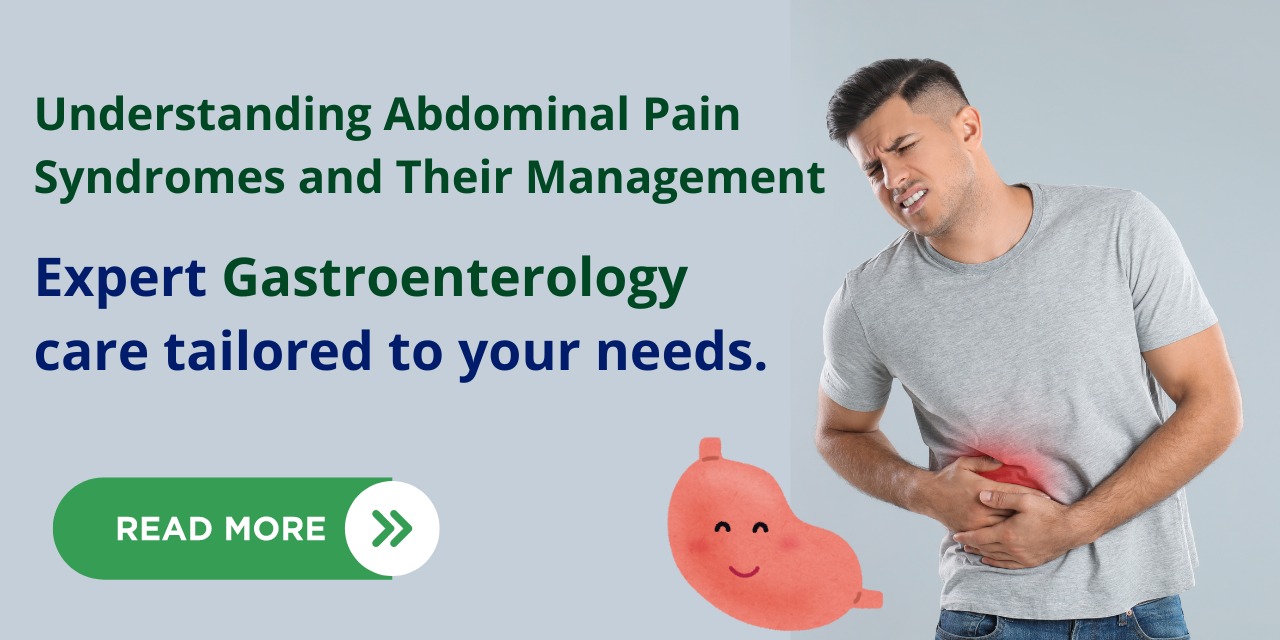Abdominal pain is a common complaint that can arise from various underlying conditions. Here, we explore several abdominal pain syndromes, their causes, symptoms, and management options available:
1. Gallstone Pancreatitis:
- Cause: Gallstones blocking the pancreatic duct.
- Symptoms: Sudden onset of severe upper abdominal pain, nausea, vomiting, and fever.
- Management: Often requires hospitalization, pain management, hydration, and in severe cases, surgical intervention to remove gallstones or the gallbladder.
2. Peptic Ulcer Disease:
- Cause: Typically due to infection with H. pylori bacteria or chronic use of non-steroidal anti-inflammatory drugs (NSAIDs).
- Symptoms: Burning stomach pain, bloating, nausea, and vomiting.
- Management: Treatment involves antibiotics (if H. pylori is present), proton pump inhibitors (PPIs) to reduce stomach acid, and avoiding NSAIDs.
3. Heartburn / GERD (Gastroesophageal Reflux Disease):
- Cause: Stomach acid flowing back into the esophagus due to a weakened lower esophageal sphincter.
- Symptoms: Burning sensation in the chest (heartburn), regurgitation of acid or food, and difficulty swallowing.
- Management: Lifestyle changes (e.g., diet modification, weight loss), medications like antacids or PPIs, and in severe cases, surgery to strengthen the sphincter.
4. Dyspepsia/Indigestion:
- Cause: Often multifactorial, including overeating, spicy foods, stress, or underlying conditions like GERD or gastritis.
- Symptoms: Bloating, discomfort or pain in the upper abdomen, early satiety, and nausea.
- Management: Dietary adjustments (e.g., smaller meals, avoiding trigger foods), medications to reduce acid production (PPIs or H2 blockers), and managing underlying causes.
Understanding Abdominal Pain: Abdominal pain syndromes can significantly impact quality of life and may indicate serious conditions requiring medical attention. If you experience persistent or severe abdominal pain, it is crucial to seek prompt medical evaluation to determine the underlying cause and receive appropriate treatment.
Conclusion:
Each abdominal pain syndrome—such as gallstone pancreatitis, peptic ulcer disease, heartburn/GERD, and dyspepsia/indigestion—presents unique challenges and treatment approaches. Timely medical evaluation is essential to accurately diagnose the underlying cause and tailor treatment accordingly. Patients experiencing persistent or severe abdominal pain should seek prompt medical attention to prevent complications and ensure effective management.For expert consultation and treatment, consider contacting Dr. Amit Singhal, Dr. Vijay Nanda, and Dr. Alok Sehgal at PGI Hospital Jalandhar. They can be reached at 08725064663. They are Best gastrologists in jalandhar . Seeking professional medical advice and care ensures proper diagnosis, management, and improvement of abdominal pain syndromes, enhancing overall well-being and quality of life. Get directions to the hospital .

